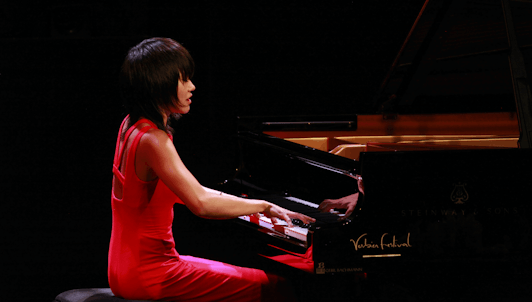For millennia, the mythological figure of Prometheus—who stole fire from the gods to give it to man—has fascinated artists of all stripes. In 1993, Claudio Abbado’s led the Berlin Philharmonic in Prometeo, a highly unusual and fascinating concert program exploring some of the brilliant musical interpretations of the ancient myth.
For a revolutionary like Beethoven, Prometheus was a archetypical champion of freedom of thought and rebellion against repression, and he would honor him in 1801 with music for the ballet Die Geschöpfe des Prometheus (“The Creatures of Prometheus”). Written fifty years later, Franz Liszt’s symphonic poem depicts Prometheus’s capture, horrible punishment inflicted on him by Zeus, and ultimate liberation. In 1910, Alexander Scriabin composed Prometheus: The Poem of Fire as a means of exploring theosophic themes like the creative principle, will, reason, and cosmic creative force. A mix between Liszt’s symphonic poem and a Piano Concerto, Scriabin’s single-movement work is based on a “mystic chord” related to dodecaphonic music. Equally seduced by Prometheus’s tale, Luigi Nono (1924-1990) composed a score based on a libretto inspired by authors as varied as Eschyle, Walter Benjamin, and Rainer Maria Rilke that was ultimately premiered in 1984 in Venice.

